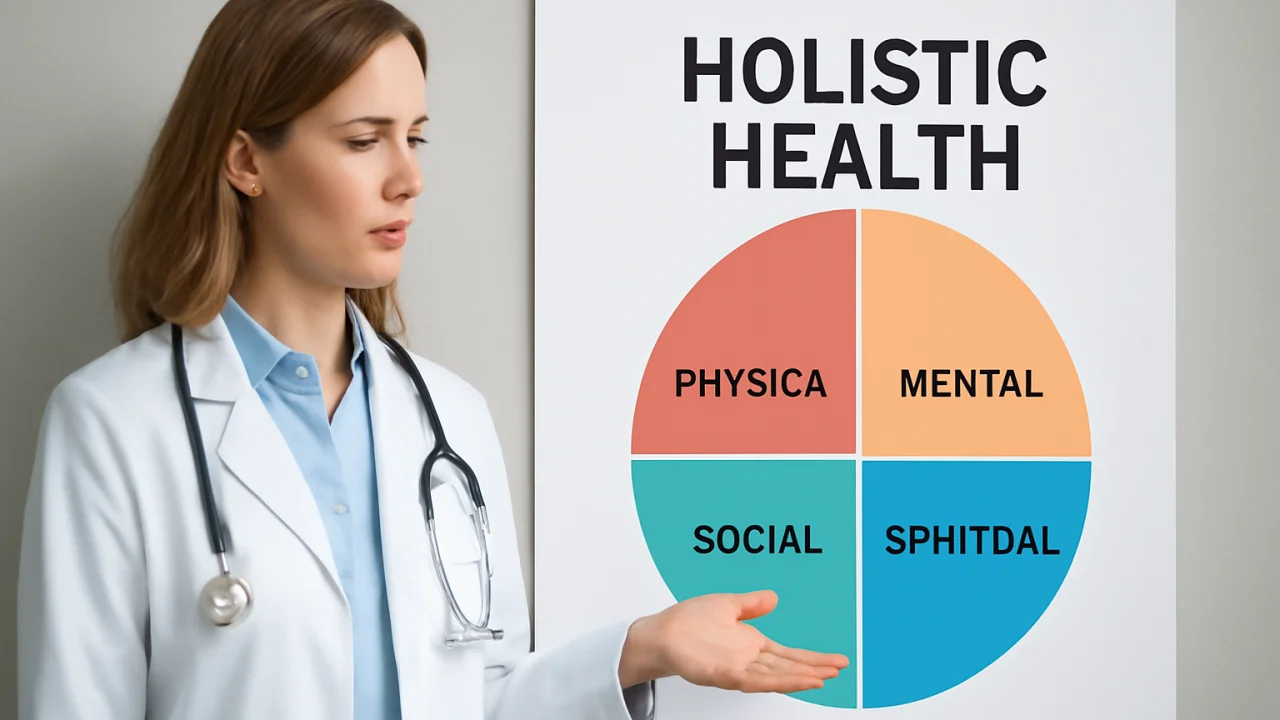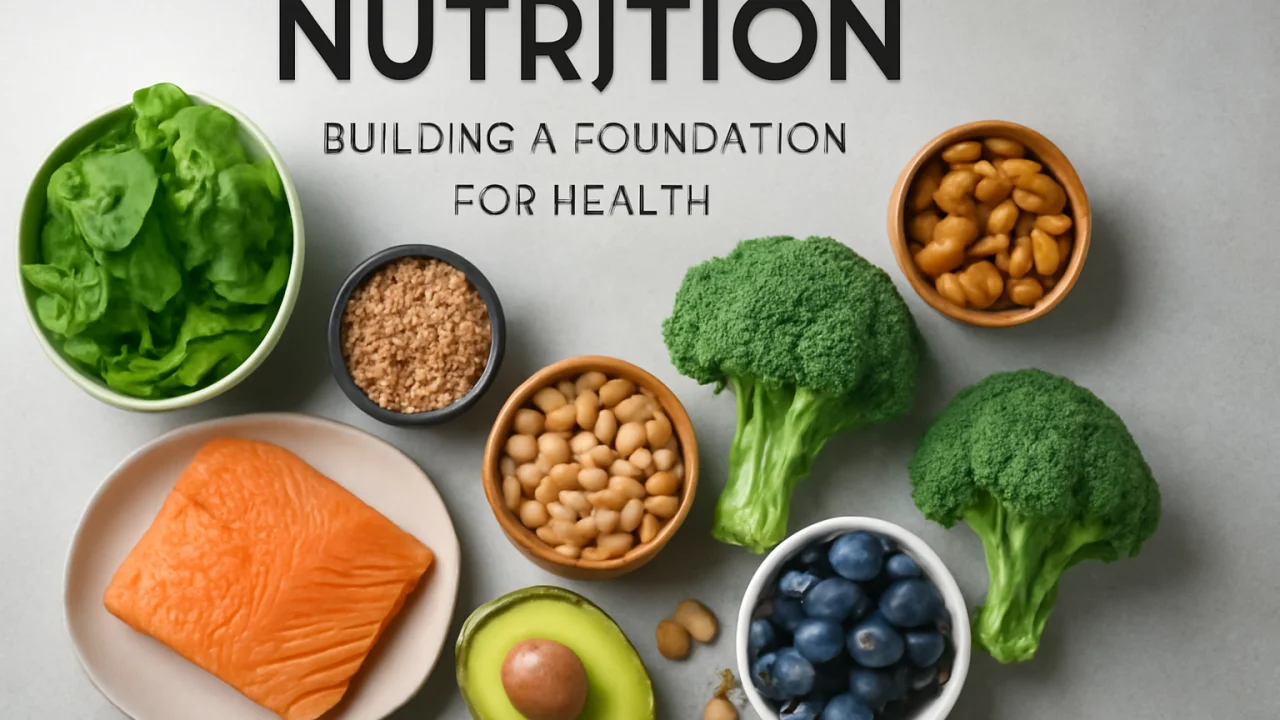
Comprehensive Guide to Holistic Health: Strategies for Lifelong Wellness
📑 Contents
Comprehensive Guide to Holistic Health: Strategies for Lifelong Wellness
Maintaining good health is more than just avoiding illness—it's about nurturing your body, mind, and spirit for overall well-being. In this comprehensive guide, we’ll explore the key pillars of holistic health, practical strategies to enhance your lifestyle, and answer some of the most common questions about staying healthy in today’s fast-paced world.
Understanding Holistic Health

Holistic health is an approach that considers the whole person, emphasizing the connection between physical, mental, emotional, and social well-being. Rather than focusing solely on treating symptoms, holistic health promotes proactive habits to prevent disease and foster balance in all areas of life.
The Pillars of Holistic Health
- Nutrition: Fueling your body with balanced, nutrient-rich foods.
- Physical Activity: Engaging in regular exercise for strength, flexibility, and cardiovascular health.
- Mental Well-being: Managing stress and nurturing emotional health.
- Preventive Care: Routine screenings and healthy habits to prevent illness.
- Social Connections: Building supportive relationships for emotional resilience.
Nutrition: Building a Foundation for Health

A balanced diet is at the core of good health. Consuming a variety of foods ensures you get the nutrients your body needs to function optimally. Here are some practical nutrition guidelines:
Key Components of a Healthy Diet
- Whole Foods: Prioritize fruits, vegetables, whole grains, lean proteins, and healthy fats.
- Limit Processed Foods: Reduce intake of sugary drinks, salty snacks, and processed meats.
- Stay Hydrated: Aim for 6–8 cups of water daily, more if you’re active or in hot climates.
- Mindful Eating: Pay attention to hunger cues, eat slowly, and avoid distractions while eating.
Sample Balanced Meal Plan
| Meal | Sample Foods | Nutritional Benefits |
|---|---|---|
| Breakfast | Oatmeal with berries and almonds | Fiber, antioxidants, healthy fats |
| Lunch | Grilled chicken salad with mixed greens, quinoa, and olive oil vinaigrette | Protein, vitamins, minerals, omega-3s |
| Snack | Greek yogurt with sliced banana | Probiotics, potassium, calcium |
| Dinner | Baked salmon, roasted sweet potatoes, steamed broccoli | Lean protein, vitamin A, fiber, omega-3s |
Physical Activity: Move for Health

Regular exercise is essential for maintaining a healthy weight, supporting heart health, and boosting mood. Both aerobic and strength-training activities contribute to a well-rounded fitness routine.
Exercise Recommendations
- Adults should aim for at least 150 minutes of moderate-intensity aerobic exercise per week (e.g., brisk walking, cycling).
- Include muscle-strengthening activities (e.g., weightlifting, yoga) on 2 or more days per week.
- Incorporate flexibility and balance exercises (e.g., stretching, tai chi) to prevent injury and support mobility.
Practical Tips for Staying Active
- Choose activities you enjoy to make exercise a habit.
- Break up activity into short sessions throughout the day if needed.
- Track your progress with a fitness app or journal for motivation.
Mental and Emotional Well-being
Mental health is as important as physical health. Chronic stress, anxiety, and depression can undermine your overall well-being. Taking steps to nurture your mind and emotions is crucial.
Strategies for Managing Stress
- Mindfulness: Practice meditation, deep breathing, or yoga to stay present and reduce anxiety.
- Healthy Sleep: Aim for 7–9 hours of quality sleep each night to support brain function and mood.
- Seek Support: Talk to friends, family, or a mental health professional when facing challenges.
- Limit Screen Time: Take breaks from digital devices to promote relaxation and reduce mental fatigue.
Preventive Care: Staying Ahead of Health Issues
Preventive care involves regular check-ups, screenings, and vaccinations to catch potential health problems early. Early intervention can lead to better outcomes and lower healthcare costs down the road.
Essential Preventive Health Actions
- Schedule annual physical exams with your healthcare provider.
- Stay up-to-date with recommended screenings (blood pressure, cholesterol, cancer screenings, etc.).
- Follow immunization schedules for flu, COVID-19, and other preventable illnesses.
- Discuss any new symptoms or concerns with your doctor promptly.
Lifestyle Habits for Long-Term Wellness
Beyond diet and exercise, several lifestyle factors play a significant role in holistic health. Small, consistent changes can make a big difference over time.
Key Healthy Habits
- Avoid Smoking and Excessive Alcohol: Both increase the risk of chronic diseases.
- Maintain a Healthy Weight: Reduces risk of diabetes, heart disease, and joint issues.
- Stay Socially Connected: Positive relationships support mental health and longevity.
- Practice Gratitude: Keeping a gratitude journal can boost happiness and resilience.
Frequently Asked Questions
How often should I get a health check-up?
Most adults should have a check-up at least once a year. However, your doctor may recommend more frequent visits based on your age, health history, and risk factors.
What’s the best diet for overall health?
A balanced diet emphasizing whole foods—fruits, vegetables, whole grains, lean proteins, and healthy fats—is best. The Mediterranean and DASH diets are both evidence-based options.
How do I start exercising if I’m out of shape?
Begin with low-impact activities like walking or swimming. Start slow and gradually increase duration and intensity. Consult your doctor before starting a new exercise routine if you have health concerns.
How can I manage stress naturally?
Mindfulness practices, regular exercise, adequate sleep, and social support are effective natural stress relievers. If stress feels overwhelming, seek help from a mental health professional.
Are supplements necessary for good health?
Most people can meet their nutritional needs through a balanced diet. However, some individuals may need supplements due to specific deficiencies, dietary restrictions, or medical conditions. Consult your healthcare provider before starting any supplement.
Summary: Your Path to Lifelong Wellness
Holistic health is about taking proactive steps in all areas of life—nutrition, exercise, mental well-being, preventive care, and healthy habits. By making informed choices and seeking balance, you can build a strong foundation for lifelong wellness. Remember, small, consistent changes are the key to lasting results. Start today and invest in your health for a brighter, more vibrant future.











